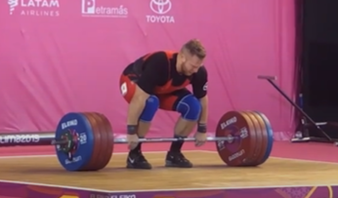The Crucial Role of Post-Workout Stretching
Stretching after a workout is an often overlooked yet vital component of a comprehensive fitness routine. In my own words, it's about helping your body transition from a state of exertion back to a state of rest and recovery, and it plays a significant role in optimizing your results and maintaining long-term physical health. Think of it as the "cool-down" for your muscles, allowing them to relax, lengthen, and prepare for the next challenge.
Here's why post-workout stretching is so important:
1. Enhances Flexibility and Range of Motion
During exercise, your muscles repeatedly contract and shorten. Without proper stretching, they can remain in this shortened state, leading to a gradual reduction in flexibility. Post-workout stretching helps to lengthen these muscles, promoting a greater range of motion around your joints. This improved flexibility allows for more fluid and efficient movement in daily activities and future workouts, potentially reducing the risk of injury.
2. Reduces Muscle Soreness (DOMS)
While the exact mechanisms are still being researched, many people find that post-workout stretching can help to alleviate Delayed Onset Muscle Soreness (DOMS). While it may not eliminate it entirely, it can contribute to a more comfortable recovery by promoting blood flow and helping to flush out metabolic byproducts that accumulate during intense exercise.
3. Improves Blood Circulation
Stretching after a workout can enhance blood flow to the muscles that have just been worked. This increased circulation delivers essential nutrients and oxygen to the muscle cells while simultaneously aiding in the removal of waste products, both of which are crucial for effective recovery and repair.
4. Promotes Relaxation and Stress Reduction
The act of stretching, especially when performed with mindful breathing, can be incredibly calming and meditative. It provides an opportunity to slow down, focus on your body, and release any lingering tension from the workout. This can contribute to overall stress reduction and a sense of well-being.
5. Aids in Muscle Recovery and Repair
By helping to restore muscles to their optimal length and improving circulation, stretching can indirectly support the muscle recovery and repair process. When muscles are more supple and have better blood flow, they are better equipped to rebuild and adapt to the stresses of exercise.
6. Corrects Muscle Imbalances
Many workouts, especially those that focus on specific muscle groups, can lead to muscle imbalances where some muscles become tighter and others weaker. Post-workout stretching allows you to target and lengthen those muscles that tend to become tight, helping to maintain muscular balance and proper posture.
References:
American College of Sports Medicine (ACSM). While the ACSM doesn't have a single document titled "Importance of Post-Workout Stretching," their guidelines for exercise prescription consistently emphasize the inclusion of flexibility training as a crucial component of a well-rounded fitness program. This is often integrated into the cool-down phase. You can find this information in their various publications and position stands on exercise.
Andersen, L. L., et al. (2012). Effect of stretching on range of motion and muscle soreness: a systematic review. Scandinavian Journal of Medicine & Science in Sports, 22(4), 481-492. (While this review looks at stretching in general, it often discusses the post-exercise context and its relationship to soreness and flexibility).
Magnusson, S. P., & Renström, P. (2006). The Role of Stretch in the Prevention of Muscle Injuries. Sports Medicine, 36(7), 543-558. (This article delves into the physiological effects of stretching on muscles and tendons, which supports its importance for recovery and injury prevention).
Roberts, J. M., & Smith, L. (2014). The effects of static stretching on recovery from exercise-induced muscle damage. Journal of Strength and Conditioning Research, 28(4), 1039-1046. (This study specifically investigates the impact of static stretching on recovery post-exercise).



Comments
Post a Comment